Episodes
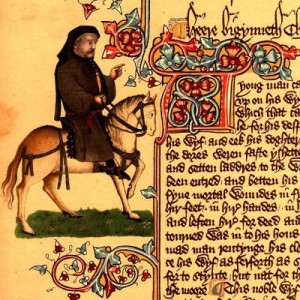
Tuesday Sep 27, 2022
The Wife of Bath and the Meaning of Marriage with Prof. Adam Cooper
Tuesday Sep 27, 2022
Tuesday Sep 27, 2022
Geoffrey Chaucer begins The Canterbury Tales describing the beauty of April and the countryside coming back to life. It is the time, he tells us, “Than longen folk to goon on pilgrimages.” “And specially,” he adds, “from every shires ende / Of Engelond to Caunterbury they wende.”
A small company of pilgrims forms and, as the go, each tells a tale.
Like the Samaritan woman Jesus spoke with in John chapter four, The Wife of Bath says she has had five husbands not to mention “other companye in youthe.” She is a wealthy woman who had been on pilgrimage as far as Jerusalem. She is also rather fond of sex and knows quite a bit about marriage.
Prof. Adam Cooper has been reading The Canterbury Tales with Wyoming Catholic College juniors and shared these thoughts.
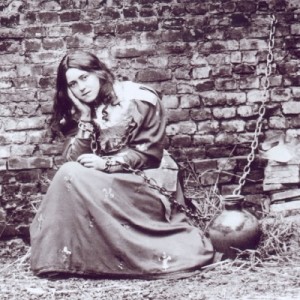
Tuesday Sep 20, 2022
Points of Light: The Church in the 19th Century with Dr. Jim Tonkowich
Tuesday Sep 20, 2022
Tuesday Sep 20, 2022
"History," commented Harvard University historian, Dr. James Hankins, "is a road to sanity."
"Points of Light: The Church in the 19th Century," the upcoming free, six-week distance learning class with Dr. Jim Tonkowich, is intended to set listeners on that road to sanity in our increasingly insane era.
Why the nineteenth century? The Catholic Church at the dawn of the nineteenth century looked as though she was on the ropes at best and, at worst, down for the count. But God had other plans.
The course begins Thursday, September 29. To register for this free course, click here.
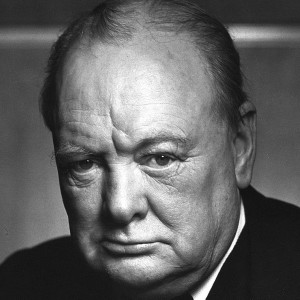
Tuesday Sep 13, 2022
”The Statesman as Thinker” with Dr. Daniel J. Mahoney
Tuesday Sep 13, 2022
Tuesday Sep 13, 2022
“The great difference between the real statesman and the pretender,” wrote Edmund Burke, “is, that the one sees into the future, while the other regards only the present; the one lives by the day, and acts on expedience; the other acts on enduring principles and for immortality.”
Eighteenth century British thinker and Member of Parliament, Edmund Burke is one of six politicians highlighted by Dr. Daniel J. Mahoney in his new book The Statesman as Thinker: Portraits of Greatness, Courage, and Moderation.
Dr. Mahoney, Senior Fellow at the Claremont Institute, Senior Writer at Law and Liberty, and professor emeritus at Assumption University delivered a lecture last Friday at Wyoming Catholic College and was kind enough to record this interview.
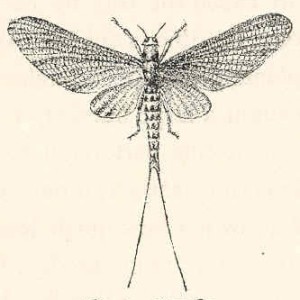
Tuesday Sep 06, 2022
Eyes Wide Open: Field Science with Dr. Stanley Grove
Tuesday Sep 06, 2022
Tuesday Sep 06, 2022
On the Middle Fork of the Popo Agie River, a group of young men and women were wading with nets. Others sprawled out on the ground with Petrie dishes and sketchbooks. It's Field Science at Wyoming Catholic College.
What is field science? To quote our website: “this course is an introduction to natural science through field study that puts students in direct contact with the local natural environment. Through the direct experience and methodical observation of the heavens, geological formations, flora, and fauna, observational skills are sharpened and a sense of wonder at nature and natural history is cultivated. Students spend much time outdoors, drawing and recording data in sketchbooks.”
Dr. Stanley Grove has been out in the field with multiple freshmen field science groups and reflects on what the students have learned.
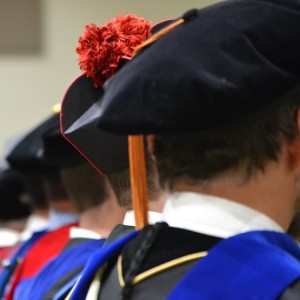
Tuesday Aug 30, 2022
Attuning Self to Community: Matriculation Address 2022 by Dr. Glenn Arbery
Tuesday Aug 30, 2022
Tuesday Aug 30, 2022
At Wyoming Catholic college, “Ours is an education of immersion: immersion in the Western tradition, immersion in the beauty and challenges of the wilderness, immersion in the treasures of our Catholic spiritual heritage.” Last Monday fifty-six freshmen, back from their 21-day backpacking expedition, began their immersion at Wyoming Catholic College.
It is customary, as you might imagine, for the college president, Dr. Glenn Arbery to address the new freshmen. Here is what Dr. Arbery had to say last week to the Wyoming Catholic College class of 2026.
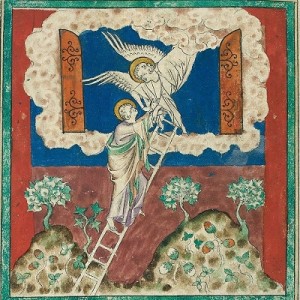
Tuesday Aug 23, 2022
Introduction to ”Spe Salvi” by Dr. Michael Bolin
Tuesday Aug 23, 2022
Tuesday Aug 23, 2022
The 2022 Wyoming School of Catholic Thought featured readings on the topic “Mortality and Eternity” including Pope Benedict XVI's 2007 encyclical Spe Salvi.
“The belief that love can reach into the afterlife,” wrote Pope Benedict, “that reciprocal giving and receiving is possible, in which our affection for one another continues beyond the limits of death—this has been a fundamental conviction of Christianity throughout the ages and it remains a source of comfort today.”
Dr. Michael Bolin gave the 2022 Wyoming School of Catholic Thought participants this introduction to Spe Salvi.
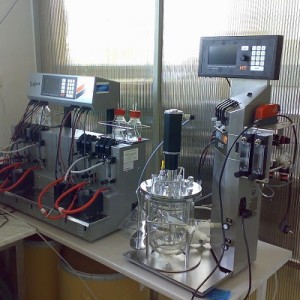
Tuesday Aug 16, 2022
An Introduction to Leon Kass’ ”L’Chaim and Its Limits” by Dr. Daniel Shields
Tuesday Aug 16, 2022
Tuesday Aug 16, 2022
In his essay, “L’Chaim and Its Limits: Why Not Immortality?” Dr. Leon Kass asks, “If life is good and more is better, should we not regard death as a disease and try to cure it?”
While “curing” death may seem far-fetched, the so-called trans-human project seeks to do just that.
Kass, an Orthodox Jew, wrote the essay for those with no or with little religion. Wyoming Catholic College philosopher, Dr. Daniel Shields gave the participants in this year’s Wyoming School of Catholic Thought this introduction to Kass’ essay before we broke into seminar groups.
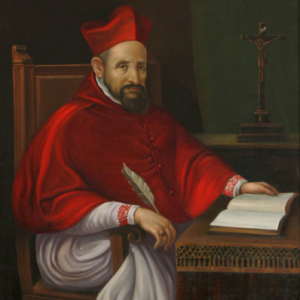
Tuesday Aug 09, 2022
Introduction to St. Robert Bellermine’s Sermon on Death by Dr. Scott Olsson
Tuesday Aug 09, 2022
Tuesday Aug 09, 2022
The Book of Hebrews 9:27 reminds us, “it is appointed for men to die once, and after that comes judgment.”
St. Robert Bellarmine, had, it seems, a congregation that had, for the most part, forgotten that truth. Their lives were focused on this world, their concern for death and judgment weak, their hearts cold to the things of God and to their faith.
As a good pastor, they needed to be warned. Bellarmine preached four sermons on the four last things: death, judgment, hell, and heaven. At the 2022 Wyoming School of Catholic Thought, we read the first of the four, Bellarmine’s sermon on death.
Dr. Scott Olsson gave us this introduction before we broke up into seminar groups to discuss Bellarmine’s words.
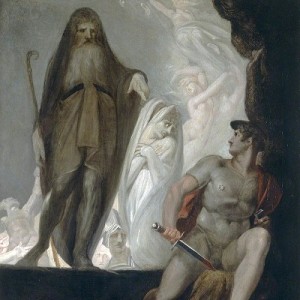
Tuesday Aug 02, 2022
Journeys Among the Dead by Dr. Glenn Arbery
Tuesday Aug 02, 2022
Tuesday Aug 02, 2022
In his poem The Four Quartets, T. S. Eliot wrote:
“What the dead had no speech for, when living,
They can tell you, being dead: the communication
Of the dead is tongued with fire beyond the language of the living.”
In Homer’s Odyssey, Virgil’s Aeneid, and Dante’s Divine Comedy, we read about encounters with those who have died. Odysseus seeks wisdom from the prophet Teiresias and his mother, Anikleia (Odyssey 11.1-224). Aeneas meets his father Anchises, parent and prophet (Aeneid 6.739-983). And Dante holds a long conversation in Heaven with his great-great-grandfather, Cacciaguida who also assumes the role of prophet (Paradiso 15-17).
What can we learn from these fictional encounters with the dead? Dr. Glenn Arbery gave this introduction at the 2022 Wyoming School of Catholic Thought.
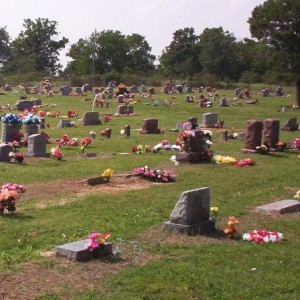
Tuesday Jul 26, 2022
Introduction to William Faulkner’s ”Go Down, Moses” by Dr. Virginia Arbery
Tuesday Jul 26, 2022
Tuesday Jul 26, 2022
Author Ann-Marie MacDonald noted, “It’s important to attend funerals. It is important to view the body, they say, and to see it committed to earth or fire because unless you do that, the loved one dies for you again and again.”
In “Go Down, Moses,” the final chapter of his novel Go Down, Moses, William Faulkner tells us the story about a funeral. The deceased is a young man executed in Chicago for murder. Home is back in Mississippi and his grandmother who raised him is determined to bring him back home to bury him. For that she’ll need a great deal of help.
Dr. Virginia Arbery gave the 2022 Wyoming School of Catholic Thought this introduction to Faulkner’s story.

